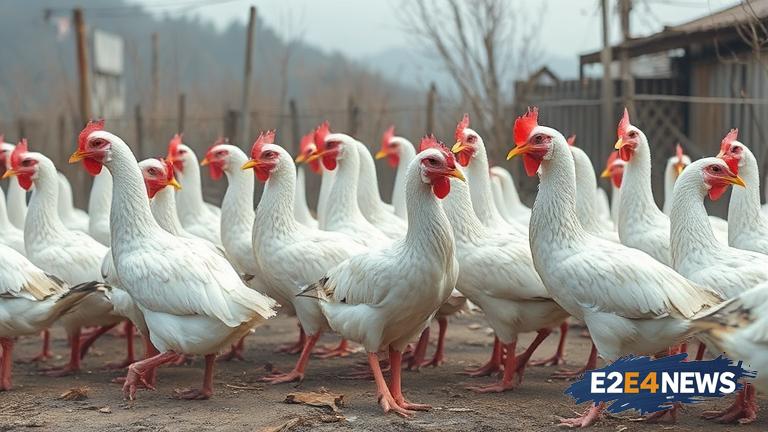The avian influenza outbreak in South Korea has been a persistent concern for the country’s agricultural and health sectors. The highly pathogenic H5N8 strain of the virus has been detected in numerous farms and wild bird populations, leading to a significant increase in the number of cases. The outbreak has resulted in the culling of millions of birds, with the government taking measures to prevent the spread of the disease. Despite these efforts, the virus continues to spread, with new cases being reported daily. The economic impact of the outbreak has been substantial, with the poultry industry suffering significant losses. The government has implemented strict control measures, including the closure of poultry markets and the restriction of bird movements. However, the virus has also been detected in wild birds, making it challenging to contain the outbreak. The World Health Organization (WHO) has warned that the virus has the potential to mutate and spread to humans, although the risk is currently considered low. The South Korean government has taken steps to educate the public on the risks associated with the virus and the importance of taking precautions. The outbreak has also raised concerns about the country’s food safety and the potential impact on the environment. The government has established a task force to coordinate the response to the outbreak and to develop strategies for preventing future occurrences. The task force includes representatives from various government agencies, as well as experts from the poultry industry and academia. The outbreak has highlighted the need for improved biosecurity measures in the poultry industry, as well as the importance of international cooperation in responding to animal health crises. The South Korean government has also sought assistance from international organizations, including the WHO and the Food and Agriculture Organization (FAO) of the United Nations. The outbreak is a reminder of the importance of vigilance and preparedness in responding to animal health crises, and the need for continued investment in research and development to improve our understanding of these diseases. The government has also announced plans to provide support to farmers who have been affected by the outbreak, including financial assistance and guidance on biosecurity measures. The outbreak has also raised concerns about the potential impact on the country’s trade relationships, with some countries imposing restrictions on imports of South Korean poultry products.
